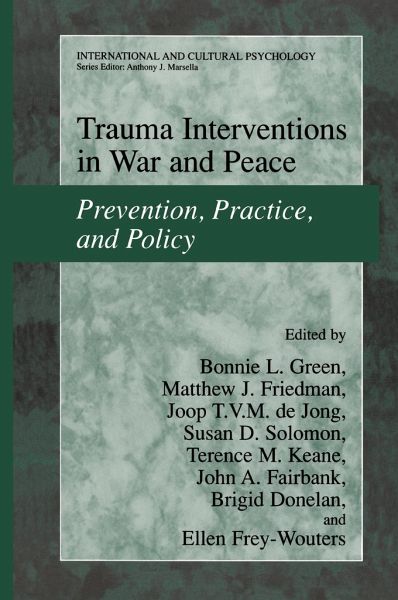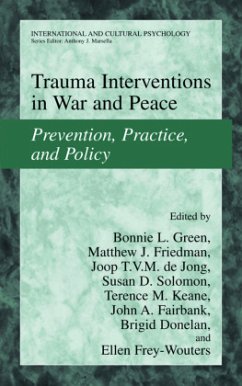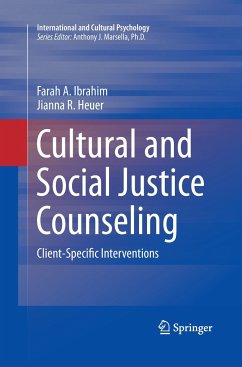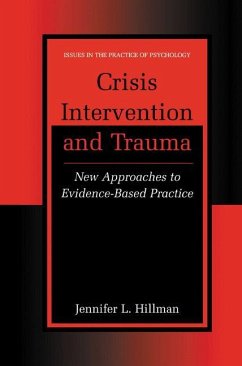
Trauma Interventions in War and Peace
Prevention, Practice, and Policy
Herausgegeben: Green, Bonnie L.; Friedman, Matthew J.; Jong, Joop de; Solomon, Susan D.; Keane, Terence M.; Fairbank, John A.; Donelan, Brigid; Frey-Wouters, Ellen
Versandkostenfrei!
Versandfertig in 1-2 Wochen
115,99 €
inkl. MwSt.
Weitere Ausgaben:

PAYBACK Punkte
58 °P sammeln!
To be useful to both practitioners and policy makers, the book identifies model programs that can be implemented at every level. These programs vary in target and intensity to include social policy, safety programs, public education, coordination, capacity building, training, self-help, counseling, and clinical intervention. A core group of chapters covers the general concepts of traumatic stress, intervention, and social deprivation, while others focus on specific traumatic events like refugees and child abuse in peacetime, each addressing the scope of the problem, reactions to the traumatic stressor, intervention issues, and recommendations. One whole chapter is devoted to caregiver reactions. Special features of the book are the integration of cultural, gender, poverty, and marginalization issues into each discussion, as well as the contributions of internationally noted academic and professional experts. U.N. and NGO personnel provided input and feedback on each chapter to provide the best working guidelines available for those responding to trauma around the world.
Peace of mind is a most precious resource, without which neither rich nor poor can know happiness. Yet mental health is undervalued and routinely taken for granted. Moreover, we allow war, torture, violence, poverty, d- ease, discrimination, and domestic abuse to undermine it. The wounds inflicted by these great human ills sicken the individual psyche, tear f- ilies apart, and send shock waves through society. Natural disasters, too, can cause sudden and acute trauma. Often, the damage-a chronic and relentless loss of dignity, self-esteem, and hope-is transmitted from one generation to the next: a sad and painful legacy indeed. Scientists, scholars, and medical and other professionals are seeking continuously to know more about mental health, and to apply their kno- edge. All of us, vulnerable human beings that we are, need to work together to ensure that the environment we live in is conducive to peace of mind, and free of the horrors that jeopardize mental well-being. This publication grew out of the commitment of the United Nations and others to this cause, and is the product of a series of lively meetings that the authors held at UN Headquarters with civil society groups, government officials, and United Nations staff-a dialogue that coincided with the World Health Organization's focus on mental health in 2001. I hope it will be a valuable resource for practitioners, policymakers, and United Nations field and headquarters staff wherever trauma strikes, and wherever peace of mind is threatened.














